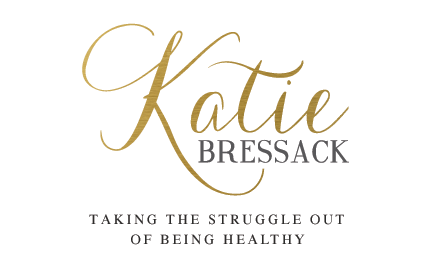There are many phrases we’ve come to know: An apple a day keeps the doctor away, you are what you eat, or the way to a man’s heart is though his stomach… But what about that age old adage, “Breakfast is the most important meal of the day”? Today we are sharing why breakfast is so important to your health. Not only does breakfast help to balance our blood sugar levels but it supports our hormone cortisol, which regulates stress.
Our bodies run based on an internal clock. We sleep when its dark, fast through the night, and need sustained energy through the day. This internal clock dictates more than you may think!
WHEN we eat can affect many things: glucose control, nutrient absorption, and, yes, weight loss. Studies show that our body’s energy expenditure (calories burned) is higher in the mornings. One study found that for overweight women that consumed 50% of their calories at breakfast and only 14% at dinner, they lost 5.1kg more than those that ate 14% of the calories at breakfast and 50% at dinner. Wow!
So what does this mean? For one, we aren’t meant to be eating late at night. Studies show an association between late night eating and a decrease in our quality of sleep. A decrease in quality sleep can then alter our hormones that regulate hunger and satiety, thus promoting weight gain. We are not meant to eat late at night, especially right before sleeping. Find out more about the effects of sleep HERE.
And when it comes to breakfast, studies show benefits to eating breakfast for those that are obese/overweight. Eating in the morning decreased the desire for snacking throughout the day and helped promote healthier lifestyle habits that promoted weight loss. Eating breakfast is also crucial for the overall health of your hormones and it can make a big impact on reducing PMS, mood swings, cortisol levels and so much more. Be sure to read this blog post about the importance of breakfast for your hormones.
.jpg)
How To Incorporate a Healthy Breakfast
Make Breakfast the Night Before
This may seem like just another addition to your to-do list but it is much simpler than you may think! Certain recipes are easy to toss together the night before. Overnight oats or breakfast chia pudding can be easy to toss together the night before. These breakfast items require putting ingredients in a bowl, putting it in the fridge and allowing it to soak overnight. In the morning, your breakfast is ready to go. Try an easy Overnight Oats Recipe here. Other simple recipes can include a hard-boiled egg and chopped fruit, homemade egg muffins, or a smoothie made the night before.
Wake Up Earlier
Try setting your alarm 10 minutes earlier to give yourself time to make a quick breakfast. Avocado on toast, scrambled eggs, or a quick smoothie are often recipes that take only 5 minutes of your time. The key to waking up ten minutes earlier is to get to bed earlier. If you have having trouble falling asleep at night check out these nine sleep hacks.
Meal Prep the Week Ahead
When considering meal prepping, we often neglect breakfast. But why not portion out your oatmeal or boil eggs for the week? Making your breakfast easy to grab certainly makes for a simpler morning routine.
It’s really important to listen to your body on not only WHAT to eat but WHEN to eat. Try to stay clear of late night eating and begin to embark on breakfast in the morning, one meal prep at a time.
Guest Blog Post By Atifah Osman
I’d love to hear your thoughts!
- Was this post helpful for you? Or, do you have any additional questions? Comment below and let me know!
- Share with your friends, forward this along or post on social. You can also join me on Instagram and in my private FB group
- Want a deeper look into your hormones? Take my quiz to see what foods might be helpful to add into your diet
- Sign up for my newsletter full of women’s health tips and get your FREE guide, the five steps to take today to help balance your hormones
Medical Disclaimer
Information in this post and on this web site is provided for informational purposes only. The information is a result of practice experience and research by the author. This information is not intended as a substitute for the advice provided by your physician or other healthcare professional or any information contained on or in any product label or packaging. Do not use the information on this web site for diagnosing or treating a health problem or disease, or prescribing medication or other treatment. Information and statements regarding dietary supplements have not been evaluated by the Food and Drug Administration and are not intended to diagnose, treat, cure, or prevent any disease. Always speak with your physician or other healthcare professional before taking any medication or nutritional, herbal or homeopathic supplement, or using any treatment for a health problem.

.png)
.png)
.png)